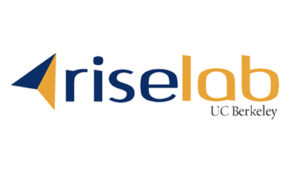
RISELab Takes Flight at UC Berkeley

UC Berkeley yesterday officially launched the RISELab, the successor to the highly successful AMPLab that produced superstar open source technologies like Apache Spark and Apache Mesos. There’s no telling what, if any, RISELab projects will strike a chord like Spark and Mesos did. But one thing is for certain: while the analytical focus will remain, the timeframe for decision making is changing dramatically.
“Like much of the Big Data movement, the AMPLab focused mostly on offline data analysis problems, where minutes and hours could be devoted to extracting value from data,” writes Brett Israel of UC Berekeley’s media relations team in a UC Berkeley story about the new lab. “At the RISELab, however, researchers are looking to [make] decisions in milliseconds.”
The RISELab’s mantra, “Real-time Intelligence with Secure Execution,” (which also forms the basis for the RISE acronym) begins to tell the story of where this project is heading.

Professor Ion Stoica, co-founder of Databricks, is a director of RISELab
“The RISE challenge is to allow machines to make decisions in a tight loop with the real world,” said RISELab principal investigator Professor Joseph Gonzalez. “So we need systems that can both understand the big context, and continuously adapt their beliefs and make robust decisions in real time.”
Judging by the lab’s homepage, the RISELab will have more of a focus on artificial intelligence technologies and data collected from the Internet of Things (IoT). Batch-oriented analytics are out, while enabling real-time decision making on fast-moving data collected from cars, houses, workplaces, and medical devices is in.
A few more software projects have been given the green light at RISELab since we first wrote about the new lab back in October. In addition to Drizzle (which aims to reduce Spark Streaming latency by a factor of 10) and Opaque (a data encryption capability for Spark), which were previously known, the RISELab website lists a variety of other projects, including:
- Allegro—for SQL queries;
- Arx—strong database encryption;
- Async DataViz—a taxonomy of anomalies for visual analytics;
- Clipper—a general purpose, low-level prediction serving system;
- Firebox OS—an operating system layer and runtime for Firebox WSC;
- Fluent—a framework for low-latency applications;
- Ground—an open-source data context service;
- NetPlay—a very fast logging mechanism;
- Paris—a framework for estimating performance of cloud-based VMs;
- Ray—a distributed execution framework;
- Tegra—a time-evolving graph processing system.
Joining Gonzalez—who is also a co-founder of machine learning automation software company Turi (formerly GraphLab), which was quietly snapped up by Apple last year—are three other RISELab directors at the university with prominent backgrounds in the big data/machine learning/artificial intelligence space, including Professor Ion Stoica, the co-founder of Databricks; Professor Joe Hellerstein, the co-founder of Trifacta; and Assistant Professor Raluca Ada Popa, who is also a co-founder of security software startup PreVeil.
Stoica, the RISELab’s principal investigator, describes the lab’s mission as “tackling a long-standing grand challenge in computing: to enable machines to rapidly take intelligent actions based on real-time data and context from the world around them,” he says.
“This technology has applications wherever computing decisions need to interact with the world in real time,” Stoica continues, “ranging from earthquake warning systems, to coordinating fleets of self-driving cars and drones, to cybersecurity and real-time financial services.”

Drone data-collection is on the docket at the new RISELab.
While AMPLab tackled problems related to the sudden explosion of big data 10 years ago, the RISELab will tackle emerging challenges related to the rapid proliferation of connected devices like cellphones, cameras, cars, and buildings, Hellerstein says.
“The next commoditization shock is underway with the proliferation of data-centric devices,” Hellerstein says. “The next big challenge in data-centric computing is to make it easy to close the loop between sensing and acting, via new platforms for real-time intelligent decision-making.”
The RISELab has 11 founding sponsors, including: Amazon Web Services, Ant Financial, Capital One, Ericsson, GE Digital, Google, Huawei, IBM, Intel, Microsoft Research, and VMWare. These companies aim to work with lab’s directors and the 30 or so grad students who will participate in RISELab classes to develop the next generation of technologies.
Whereas many big data platforms like Hadoop were initially created without security as a primary design principle, security will be front-and-center for whatever the RISELab invents.
“RISE systems have to be architected with security in mind from the grounds up,” Professor Ada Popa said in a post to the College of Engineering’s website. “We need to make it possible for data and code to be protected everywhere they are used, whether the computation runs on an edge device, a corporate data center, or in public cloud computing infrastructure.”
Intel will be looking at how it can use hardware capabilities like its Software Guard Extensions to enable security in real-time decision engines developed by tools created at the RISELab. Sridhar Iyengar, vice president in Intel Labs, says Intel is looking forward to seeing how the Intel SGX technology can be put to use on live data.
RISELab is housed in Soda Hall in the Department of Electrical Engineering and Computer Sciences within the College of Engineering. For more information, see rise.cs.berkeley.edu.
Related Items:
RISELab Replaces AMPLab with Secure, Real-Time Focus
Über File System from Alluxio Gaining Enterprise Traction
AMPLab Releases Succinct, A New Way to Query Data in Spark



























